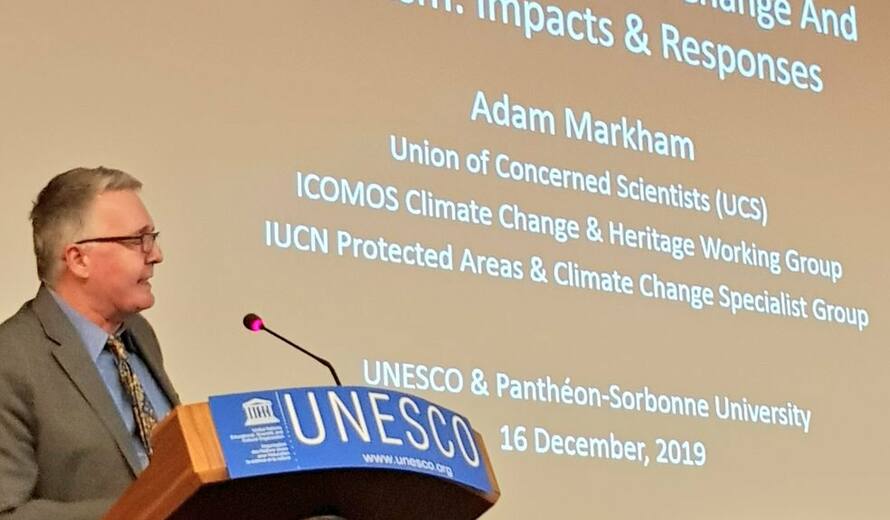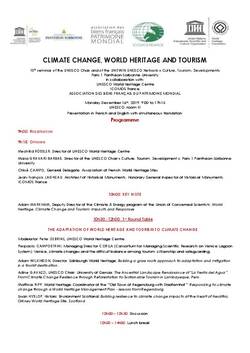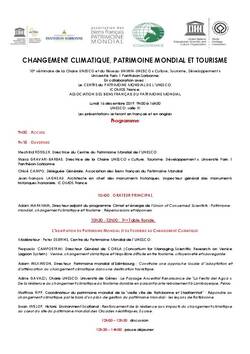Experts discuss Climate Change, World Heritage and Tourism at UNESCO
The seminar "Climate Change, World Heritage and Tourism" was presented at UNESCO Headquarters on 16 December 2019 by Paris 1 Panthéon-Sorbonne University in collaboration with UNESCO World Heritage Centre, ICOMOS France and the Association des biens français du patrimoine mondial.
On a global scale, tourism is a factor contributing to climate change, especially when emissions are measured at the level of the individual. Carbon emissions from tourism, including air travel, are expected to double in the next 25 years. Climate change poses a risk to the integrity and preservation of World Heritage properties, endangering what makes them attractive to tourists.
Managers of World Heritage sites are setting up new measures to both mitigate and adapt to these phenomena. These include projects to assess risk, minimize the impacts of climate change by increasing site resilience, and launching initiatives to adapt to changing conditions.
The seminar "Climate Change, World Heritage and Tourism" discussed these questions holistically and at global, regional and local levels. Opened by Mechtild Rössler, Director of the UNESCO World Heritage Centre, the keynote speaker was Adam Markham, Deputy Director of the Climate & Energy program at the Union of Concerned Scientists and discussed impacts and responses to World Heritage, Climate Change and Tourism. Helena Rey de Assis from UN Environment’s Consumption and Production Unit shared projects they are implementing to transfer tourism value chains in the Dominican Republic, the Philippines, Saint Lucia and Mauritius.
The sessions illustrated how climate change is already impacting the Outstanding Universal Value of World Heritage sites in different ways in various environments, from Venice in Italy to Bwindi Impenetrable National Park in Uganda. Panellists further emphasized the need for understanding the risks, maintaining effective monitoring and taking action both locally and internationally.
The seminar also provided case studies on how the Climate Vulnerability Index (CVI) is being implemented around the world. This rapid assessment tool has been specifically developed for application in World Heritage properties, building upon the vulnerability framework approach described in the Fourth Assessment Report of the Intergovernmental Panel on Climate Change (IPCC).
Paris 1 Panthéon-Sorbonne University is a UNESCO Chair in Tourism, Culture and Development.
Download the joint report on ‘World Heritage and Tourism in a Changing Climate’


